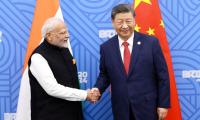KARACHI: The Federal Board of Revenue (FBR) saw income tax collection from exports sector slightly increase two percent to Rs3.08 billion in the first five months of the current fiscal year, official data showed.
The tax collection amounted to Rs3.03 billion in the corresponding period of the last fiscal year.
The marginal increase corresponds to modest growth in exports during the period under review. The country exported goods worth $9.7 billion during the first five months of the current fiscal year. That was up 2.2 percent from $9.5 billion the same period a year earlier.
In November, the collection of income tax on exports posted a decline of two percent to Rs685 million. That was compared to Rs700 million in the same month of the last year. Monthly exports amounted to $2.2 billion compared to $2 billion, showing 8.3 percent growth. Realisation of export proceeds took some time and the growth impact will reflect in upcoming data, according to FBR sources.
The FBR collects one percent of income tax at the time of export of goods, which is the final tax liability of exporters.
Exports surpassed the $2 billion mark for the second consecutive month in November as the government refrained from abrupt shutdown after resurgence in coronavirus infection.
Exports showed first recovery in July after consecutive downtrends since March amid coronavirus lockdown. Ease in lockdown paved way for clearance of orders stuck on ports and revived economic activity.
However, growth could not be sustained in August with exports recorded a double-digit decline. In August, exports fell to $1.58 billion from $1.86 billion in the corresponding month a year earlier. Global lockdowns related to coronavirus pandemic upended the world’s economy. Economic activities came to halt and ports were chocked with cargoes unmoved due to slowdown in transportation.
Government granted various types of exemption and incentives to help exports grow. In November, government approved the country’s first-ever national tariff policy aimed at to remove anomalies in import duties structure and use it as an instrument to catalyse industrial production and for export growth.
The policy envisaged simplification of tariff slabs based on the principle of cascading, gradual reduction of tariffs on raw materials, intermediate and capital goods, gradual cut in additional customs duty and regulatory duties, and elimination of the difference in tariffs for commercial importers and industrial users of raw materials, intermediate and capital goods to provide a level-playing field to the small and medium enterprises through competitive access to essential raw materials.
A dealer counts US dollars at a currency exchange shop in Karachi. — AFP/FileKARACHI: The government’s decision to...
Man fueling car tank. —TheNews/FileKARACHI: Pakistan’s retail oil market is projected to grow by 13 per cent to...
A worker passing below the board of International Departure at Jinnnah International Airport Karachi....
A representational image of young people working in a company. — AFP/FileLAHORE: Women in Pakistan continue to face...
Platform making minor update to its "reused content" policy to clarify what constitutes reused or "overly produced"...
Industrial users increasingly shift to self-generation due to lower coal and oil prices, says expert







